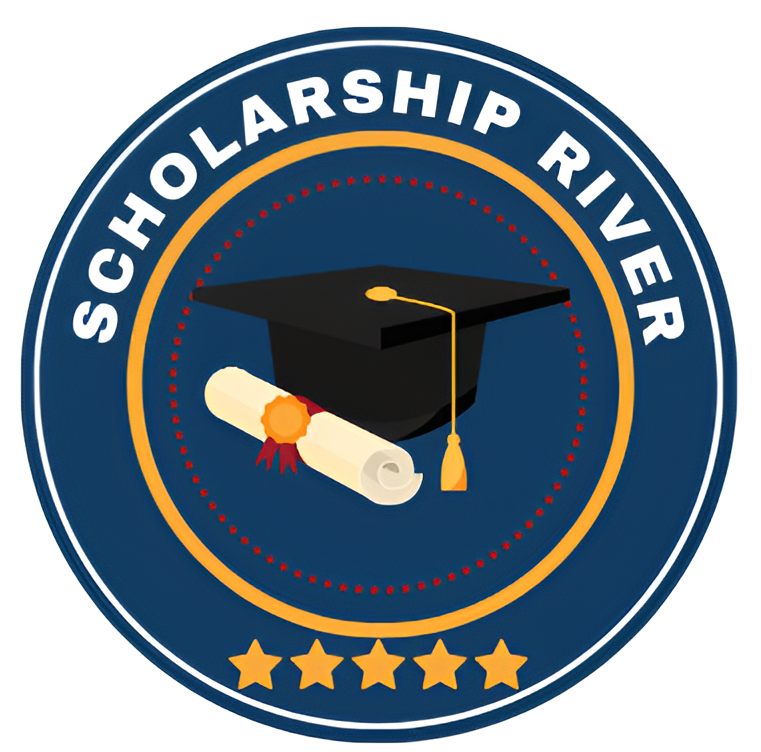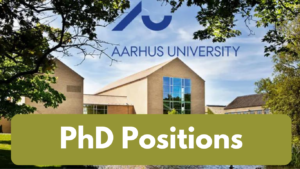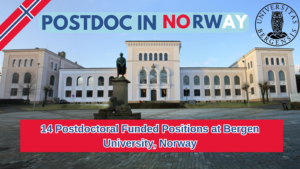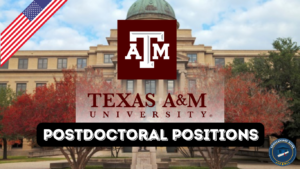The University of Milan in Italy is inviting applications for multiple PhD opportunities across various fields for the academic year 2024/2025. The call for applications for the 40th cycle doctoral programs is now open. Session I of the application period runs from April 12, 2024, to May 14, 2024, closing at 12:00 noon.
Overview of the Scholarship
Host Country: Italy
Host Institute: University of Milan
Type: PhD
Open to: All countries
Stipend: Fully funded, € 16,243.00 per year
English proficiency test (IELTS) not needed
Application Deadline: 14 May 2024 at noon (Italian time)
Eligibility Criteria
A foreign degree, as long as it is equivalent in length of studies, level, and subject area to the Italian degree required for admission to the course. Students who have not yet obtained their degree may apply for both Sessions, provided they earn their degree by 31 October 2024.
For more opportunities, visit Scholarship River
Available Research Areas
Analysis of Social and Economic Processes (ASEP)
Research topics
Subjective Well-being, Communication, Youth, Life courses, Culture and Cultural Change, Demography, Deviance and Crime, Social Research Design and Methods, Social Inequality, Economics, Ethnicity and Interethnic Relations, Family, Gender, Education, Labor Market, Social Change, Organizations, Migrants and Migrations, Social Networks, Public Policy Evaluation.
Cultural and Social Anthropology
Research topics
All fields of cultural and social anthropology. We are interested in researches that expand the anthropological and ethnographic knowledge of Africa, Northern and Southern America, Central Asia, China, Europe, India, the Middle East, Oceania, South-East Asia in addition to Italy and the Mediterranean basin.
Business for Society
Research topics
Rethinking the responsible corporation by bridging management, law, governance, and purpose; measuring, managing, and communicating on performance for sustainability; environmental, social, governance: a new paradigm for businesses; finance and economy for society; business education for society
Chemical, Geological and Environmental Sciences
Research topics
Chemical Sciences, Geological Sciences, Terrestrial and Marine Environmental Sciences
Computer Science
Research topics
All research topics related to SSD INF/01, MAT/09 and ING-INF/05
Related: 83 Fully Funded PhD Positions in Politecnico di Milano, Italy
Converging Technologies for Bimolecular Systems (TeCSBi)
Research topics
Biological systems studied from the point of view of specific emerging properties, exploiting innovative technologies and analyzing the different levels of complexity, from the ecosystemic to the molecular one. Research projects will be focused on three main pillars: – Systems and molecular biology approaches for the study of complex biological functions – Synthetic biology, Bio-organic Chemistry and Green Chemistry – Bioprospecting, Bioprocesses, Management and Valorization of NaturalResources
Economics, Statistics and Data Science
Research topics
The PhD in Economics, Statistics and Data Science is active on the following research fields: econometrics, macroeconomics, microeconomics, methodological statistics, applied and computational statistics, data science. Particular attention is devoted to the following research topics: game theory; industrial economics; DSGE models; time series analysis; forecasting/nowcasting; development economics; behavioral and experimental economics; information economics; banking; innovation management; stochastic processes; Bayesian statistics; statistical inference; computational statistics; statistical modelling; statistical learning; structured and non-structured data analysis; machine learning; data mining; natural language processing; deep learning and computer vision for business; data visualization and visual analytics.
Education in Contemporary Society
Research topics
In the course of the Ph.D programme, students will carry out research projects – which may be: experimental, quantitative, qualitative, theoretical, historical, comparative, participatory, etc. – centred on significant problems in the field of education in contemporary society.
Mathematics
Research topics
Algebra and Geometry, Mathematical Analysis, Numerical Analysis and Mathematical Modelling, Mathematical Physics, Probability and Statistics
Legal Sciences
Research topics
There are five research topics: 1. Business, Tax and Labour Law 2. Criminal justice, fundamental rights and criminal policy 3. Private autonomy, persons, protection: paths of history and contemporary perspectives 4. Powers, Rights and Democracy 5. International law, European Union law and Legal Philosophy
Materials Science and Nanotechnology
Research topics
Information about the main research topics are available on the website: https://www.mater.unimib.it/it/ricerca/linee-ricerca Places available University scholarships n. 6
Neuroscience
Research topics
Experimental Neurosciences, Clinical Neurosciences
Multiple Funded Master and PhD Positions in USA
Physics and Astronomy
Research topics
A) Theoretical physics: string theory and quantum field theory, theory and phenomenology of fundamental interactions, lattice field theories and computational physics. B) Subnuclear physics: particle physics at the Large Hadron Collider, flavour physics, neutrino physics, astroparticles and fundamental physics in space. C) Astrophysics: cosmology and primordial universe, study of galaxies, high energy astrophysics, gravitational waves and their sources D) Plasma physics: magnetically confined plasmas, thermonuclear plasmas, laser-produced plasmas, industrial applications of plasmas. E) Biophysics: non-linear optical microscopy applied to biosystems, models for dynamic processes, nanoparticles for nanomedicine. F) Physics for medicine and physics technologies. G) Electronics: design and characterization of analog or mixed integrated circuits for research projects and for industry. Digital systems based on microcontrollers, FPGA and integrated circuits. Physics of devices based on semiconductors.
Psychology, Linguistics and Cognitive Neurosciences
Research topics
Look at the website of the PhD School (https://en.unimib.it/education/postgraduates/doctoralresearch-phd-programmes/phd-programmes/psychology-linguistics-and-cognitive-neuroscience ) with details about the fields of research of the members of the Scientific Board
Public Health Epidemiology, Statistics and Economics
Research topics
Public Health, Epidemiology, Biostatistics, Health Economics
Translational and Molecular Medicine – DIMET
Research topics
Clinical and Regenerative Medicine, Technological Platforms, Nanomedicine and Diagnosis, Neurodegenerative and muscular disorders, Oncological Hematological Disorders, Cardiovascular and Pulmonary Disorders, Immunological and Infective Disorders, Cellular and Molecular Mechanisms
URBEUR-Urban Studies
Research topics
https://en.unimib.it/education/postgraduates/doctoral-research-phd-programmes/phdprogrammes/urbeur-%E2%80%93-urban-studies
Stipend Amount
The amount of the PhD scholarship is equal to € 16,243.00 per year gross of the social security charges borne by the fellow.
09 PhD Scholarships Positions in Gothenburg University, Sweden
IELTS/TOEFL not required
Applicants who have completed their academic qualifications at an institution where the courses were taught in English are not required to certify their knowledge of English. In this case, candidates required to submit English Proficiency Certificate from your academic institute (optional).
Required Documents
- CV
- Passport
- Cover letter/Motivational letter (optional)
- Research proposal
- University degrees and transcripts
- Publications list (Optional)
- Contact details of up to 2 referees
Selection Criteria
The selection process evaluates candidates’ research aptitude through qualifications assessment and oral exams, set by Academic Boards. The Selection Board has 80 points in total to assign. 20 points are reserved for the evaluation of the qualifications. Qualifications are assessed by the Selection Board before the oral examination. A total of 60 points are reserved for the oral exam. At least 40 points in the oral exam are required to achieve eligibility. The final score is given by the sum of the scores reported in the assessment of the qualifications and the oral exam.
How to Apply
Please submit your application online. The deadline for submissions is 14 May 2024 at noon (Italian time)
Call for applications 40th cycle
Guide to filling in the online application




